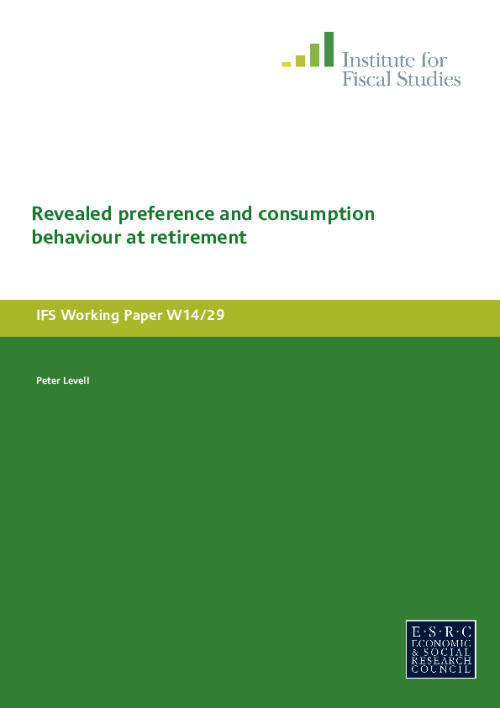This paper sets out revealed preference tests for different models of consumption behaviour over retirement that we applied to a Spanish consumption panel dataset. We reject the perfect foresight model both with separable preferences and allowing for preference change. The first order conditions for the life-cycle model allowing for uncertainty do not provide very strong restrictions on possible choices. In fact they are no stronger than those implied by the most basic revealed preference requirement: GARP. We then go on to investigate the patterns of deviations from a perfectly smoothed marginal utility of wealth and ask whether they fit the predictions of the life-cycle model. We find a tendency of these to increase over time, suggesting consumption falls more than we'd expect. After considering various possible explanations, we settle on non-rational behaviour as the most plausible.









